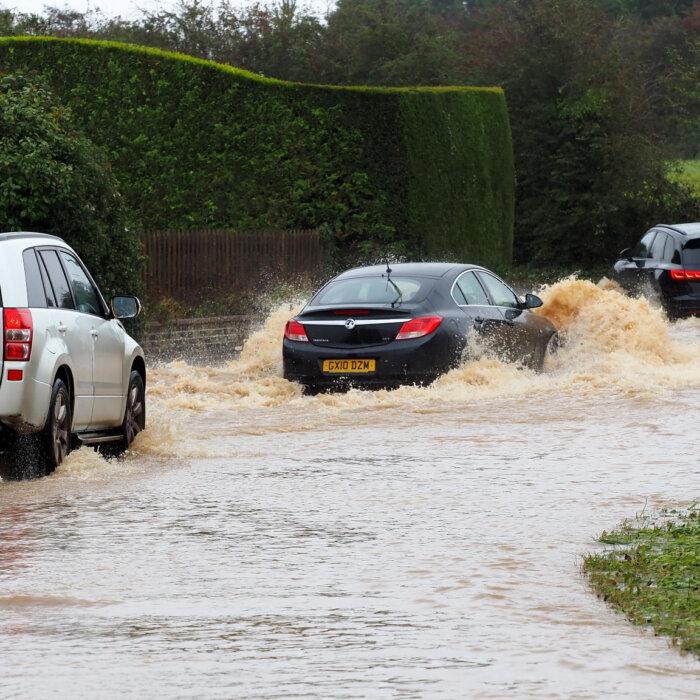UK farming leaders have warned of a brewing crisis after an unprecedentedly wet autumn and severe winter led to a drastic reduction in crop yields.
Since September 2023, Britain has been hit by 11 named storms, with the Met Office reporting that last year southeast England suffered the ninth wettest autumn since 1836.
Severe weather conditions and heavy rainfall have affected the level of crop planting and subsequently the level of crop losses.
The Agriculture and Horticulture Development Board (AHDB) estimated that wheat was down by 15 percent and winter barley by 22 percent in the biggest reduction in cropped areas since 2020.
Oilseed rape yields are expected to be down by 28 percent in the biggest decrease since the 1980s.
The National Farmers’ Union (NFU) has reported significant levels of soil saturation and flooding, with farmers unable to plant crops and losing those that were in the ground.
“It’s no exaggeration to say a crisis is building,” warned NFU Vice President Rachel Hallos in a statement.
The pressure on the farmers could translate into food market disruptions, the union suggested.
Costs
Wheat reduction could increase further, depending on the planting of spring wheat and the weather conditions. AHDB Senior Analyst Helen Plant said the persistence of wet weather has left farmers uncertain about what they could plant and harvest this spring.“Farmers still have the chance to plant crops such as spring barley and oats – but if heavy rain continues, crops will be planted at a point where they may become economically unviable. We are heading to the point where spring-sown winter wheat varieties will not be able to develop sufficiently to provide a viable crop,” said Ms. Plant in a statement.
With all parts of the UK affected, the AHDB has warned of the impact on the food market and the economy overall.
David Eudall, AHDB economics and analysis director, suggested that prices for cereals have fallen as the impact of the Ukraine conflict has been absorbed into supply chains.
“So while we may need to import more, we’re doing this at a point currently where prices have fallen. These lower prices are one of the reasons we’ve seen food price inflation fall in recent months,” he added.
However, the long-term risk of greater reliance on wheat imports—caused by poor weather, stubborn costs, and unprofitable prices—could lead to higher costs for UK food producers and farmers.
Recovery Fund
To support farmers who suffered uninsurable damage to their land owing to flooding this winter, the government has opened the Farming Recovery Fund.Ministers announced on Tuesday that eligible farmers could access grants of between £500 and £25,000. Farmers in the areas that have experienced the highest levels of flooding, such as Gloucestershire and Leicestershire, will be able to apply for funding.
“I know how difficult this winter has been for farmers, with extreme weather such as Storm Henk having a devastating impact on both cropping and grazing, as well as damaging property and equipment,” said farming minster Mark Spencer.
The NFU welcomed the scheme, calling it a “lifeline” for many of its members.
Ms. Hallos urged the government to also recognise other areas in the UK affected by Storm Henk, which brought damaging winds and heavy rain in January.







